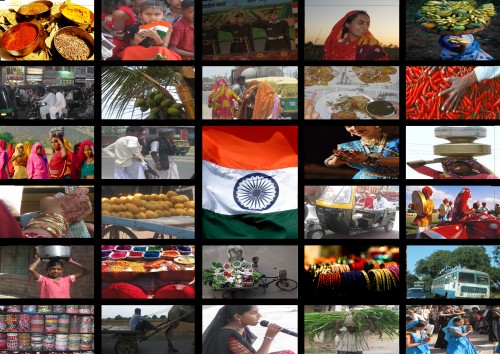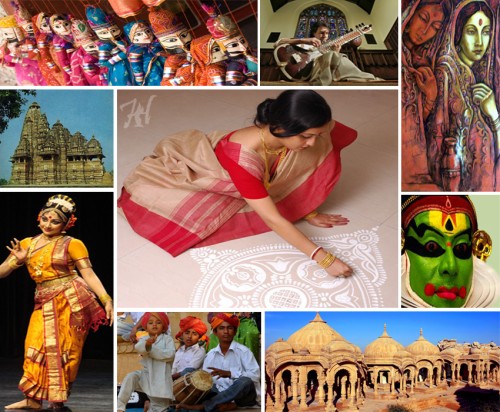CULTURE OF INDIA

India is the birthplace of Hinduism, Buddhism, Jainism and Sikhism, collectively known as Indian religions. Indian religions, also known as Dharmic religions are a major form of world religions along with Abrahamic one. Today, Hinduism and Buddhism are the world's third and fourth-largest religions respectively, with over 2 billion followers altogether, and possibly as many as 2.5 or 2.6 billion followers.
India is one of the most religiously diverse nations in the world, with some of the most deeply religious societies and cultures. Religion still plays a central and definitive role in the life of many of its people.

For generations, India has had a prevailing tradition of the joint family system. It is a system under which extended members of a family – parents, children, the children’s spouses and their offspring, etc. – live together. Usually, the oldest male member is the head in the joint Indian family system. He makes all important decisions and rules, and other family members abide by them.
For centuries, arranged marriages have been the tradition in Indian society. Even today, the majority of Indians have their marriages planned by their parents and other respected family-members. In the past, the age of marriage was young, especially in Rajasthan, but this is rising with modernization and there are now laws which govern the age of marriage.
Namaste, namaskar or Namaskara(Kannada) or Namaskaram (Telugu, Malayalam), Vanakkam (Tamil),Nomoshkaar (Bengali), Nomoskar (Assamese) is a common spoken greeting or salutation, though becoming considered old-fashioned by some. Namaskar is considered a slightly more formal version than Namaste but both express deep respect. Other greetings include "Ami Aschi" (in Bengali),"Jai Shri Krishna", "Ram Ram", and Sat Shri Akal (Punjabi, used by followers of Sikhism), Jai Jinendra is a common greeting used across the Jain community and others include "Jai ambe", "Jai Sri Ram" etc.





